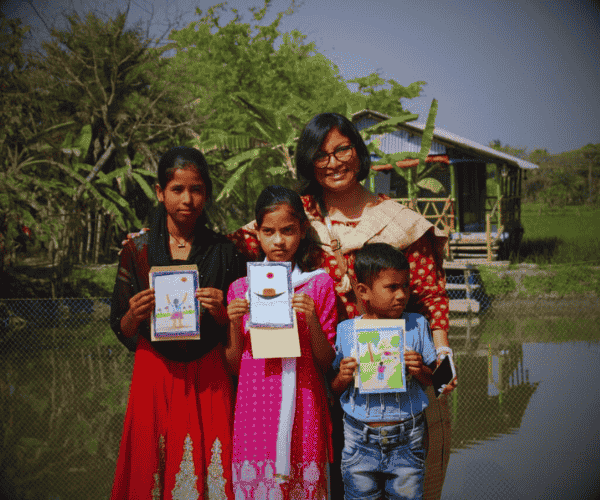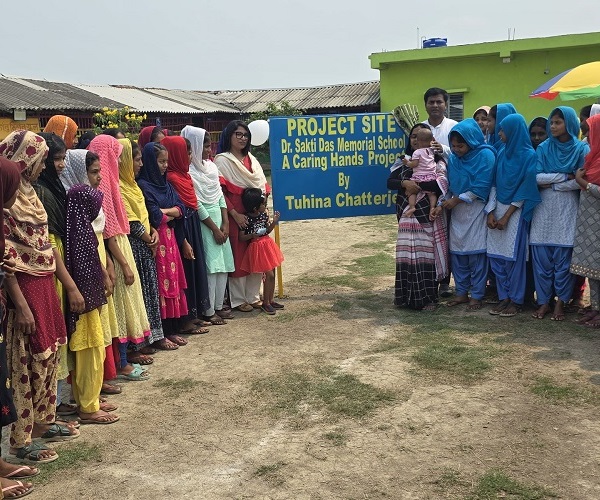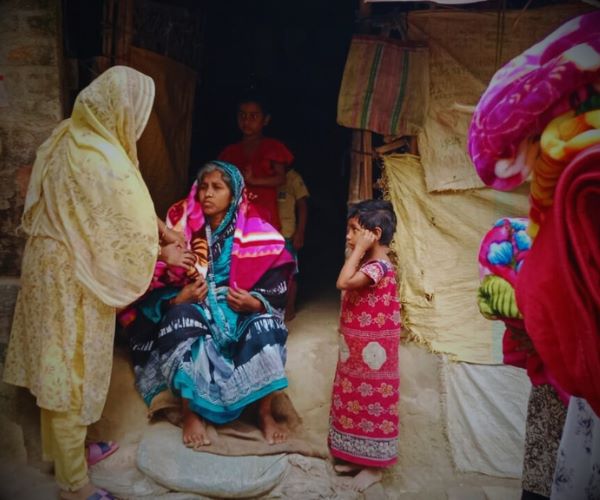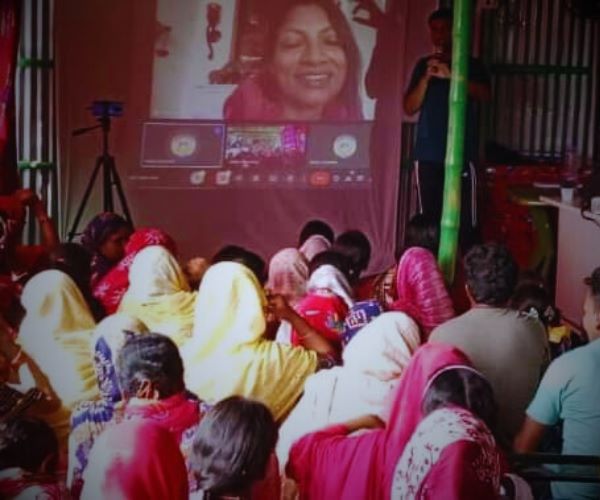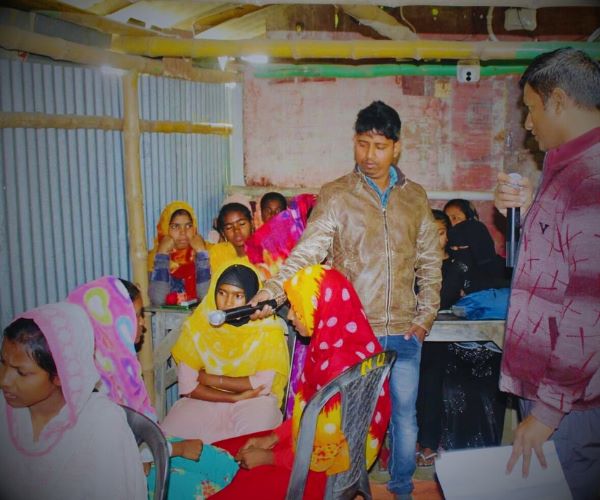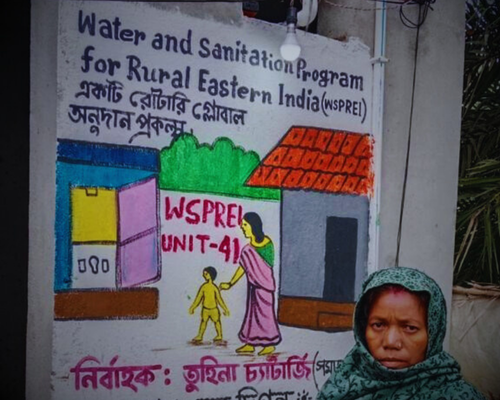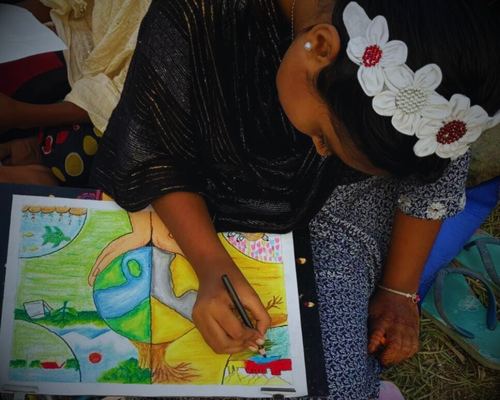
Recent Updates

Tuhina's Village
Read MoreSocial Welfare Projects
Frequently Asked Questions
The Concept
The concept of an Independent Social Worker (ISW) is a unique idea, likely conceived by Tuhina. An ISW operates independently, neither affiliated with nor managing an NGO. Instead, they are professionally qualified social workers who leverage their expertise to adopt a need-based approach, grounded in extensive fieldwork. Their work aligns with the UN Sustainable Development Goals (SDGs), WHO guidelines, and other international standards in social work.
An ISW is proficient in conducting comprehensive needs assessments, designing impact-driven project proposals, and ensuring meticulous planning and seamless implementation. They are skilled in building partnerships with key stakeholders and securing funding, all while utilizing their professional skill set to address specific community needs and create sustainable solutions.
The method to be adopted to work as an ISW are as follows:
a. Identify Underserved Regions:
Select a region lacking adequate welfare services as the focus for initiating social work activities.
b. Engage with Stakeholders:
Collaborate with targeted beneficiaries, community leaders, and local NGOs to gain an in-depth understanding of the community's needs.
c. Prioritize Needs and Design a Roadmap:
Engage community members to prioritize their needs and develop a strategic roadmap aimed at improving their standard of living.
d. Formulate a Professional Project Proposal:
Develop a comprehensive and professional project proposal outlining objectives, scope, and expected outcomes.
e. Apply for Funding:
Seek funding from relevant agencies, organizations, and donors to support the project.
f. Identify Implementation Partners:
Partner with a team of volunteers or a non-profit organization to act as collaborators for project implementation.
g. Design an Implementation Strategy:
Create a detailed implementation strategy and guidelines tailored for fieldworkers to ensure smooth execution of the project.
h. Train Fieldworkers:
Provide training to fieldworkers, clearly communicating the project's goals, implementation steps, and their respective roles.
i. Monitor Implementation:
Conduct day-to-day monitoring of project activities during the implementation phase to ensure alignment with the proposed plan.
j. Beneficiary Orientation and Integration:
Organize orientation and training sessions for beneficiaries to prepare them for successful integration into the project's outcomes.
k. Documentation and Reporting:
Maintain detailed documentation of all activities and prepare comprehensive reports to showcase progress, challenges, and impact.
Working as an Independent Social Worker (ISW) offers several advantages that allow for creativity, flexibility, and direct impact. Here are the key benefits:
1. Autonomy and Flexibility
You have full control over the choice of projects, areas of focus, and methods of work, enabling you to align your efforts with your values and vision.
Flexibility to adapt quickly to changing community needs without the constraints of organizational bureaucracy.
2. Direct Community Impact
You can engage directly with beneficiaries and tailor solutions to address their unique needs, ensuring more personalized and impactful interventions.
Opportunities to establish deeper connections with communities, fostering trust and meaningful relationships.
3. Innovative Problem-Solving
Freedom to experiment with creative, non-conventional approaches to address social issues.
Ability to design and implement customized strategies that may not fit into the standardized frameworks of larger organizations.
4. Focus on Priority Issues
As an ISW, you can identify underserved or overlooked areas and focus on addressing specific problems that resonate with you personally or professionally.
5. Reduced Administrative Overhead
Without the layers of hierarchy in traditional organizations, decision-making is faster, and resources can be allocated more efficiently.
Flexibility to adapt quickly to changing community needs without the constraints of organizational bureaucracy.
7. Alignment with International Standards
You can independently align your work with global frameworks such as the UN Sustainable Development Goals (SDGs) and WHO guidelines, enhancing the credibility and impact of your initiatives.
8. Skill Development
Taking on diverse responsibilities—from needs assessment to project implementation—helps build a wide range of professional and interpersonal skills.
Opportunities for hands-on experience in project management, leadership, fundraising, and stakeholder engagement.
9. Personal Satisfaction and Fulfillment
The freedom to see projects through from conception to completion can provide a strong sense of accomplishment and purpose.
Witnessing the direct impact of your work on individuals and communities is deeply rewarding.
10. Advocacy and Influence
As an independent actor, you can champion specific causes, raise awareness, and advocate for policy changes without being constrained by organizational agendas.
11. Cost Efficiency
You can manage resources with greater efficiency, directing funds and efforts precisely where they are needed without unnecessary overhead.
12. Niche Expertise
Ability to develop a specialized focus or niche area of social work, building recognition as an expert in a particular domain.
These advantages make the role of an ISW highly dynamic and impactful, particularly for individuals passionate about driving meaningful change on their own terms.
Working as an Independent Social Worker (ISW) comes with unique challenges that require resilience, adaptability, and strong professional skills. Some key challenges include:
1. Lack of Institutional Support:
Operating without the backing of an NGO or organization can lead to difficulties in accessing resources, networks, and logistical support.
2. Funding Constraints
Securing consistent funding from agencies and donors is challenging, especially when competing with established organizations for limited resources.
3. Limited Access to Beneficiary Communities
Gaining the trust of communities and access to underserved regions may be difficult without prior connections or organizational credibility.
4. High Workload
Being responsible for every aspect of the project—needs assessment, proposal writing, implementation, monitoring, and reporting—can lead to burnout.
5. Building Partnerships
Identifying and collaborating with volunteers, fieldworkers, or non-profits can be time-intensive and requires strong interpersonal and negotiation skills.
6. Risk Management
Handling unforeseen circumstances such as natural disasters, political instability, or community resistance may require additional resources and planning.
7. Balancing Professionalism and Grassroots Engagement
Striking a balance between using professional skillsets and adapting to grassroots realities can be complex in diverse socio-cultural settings.
